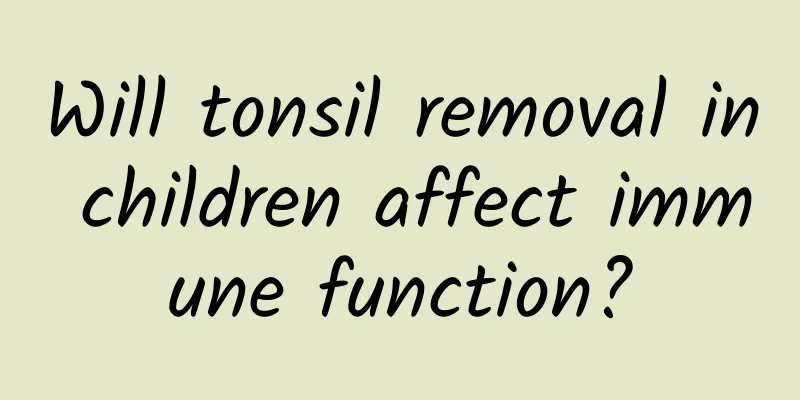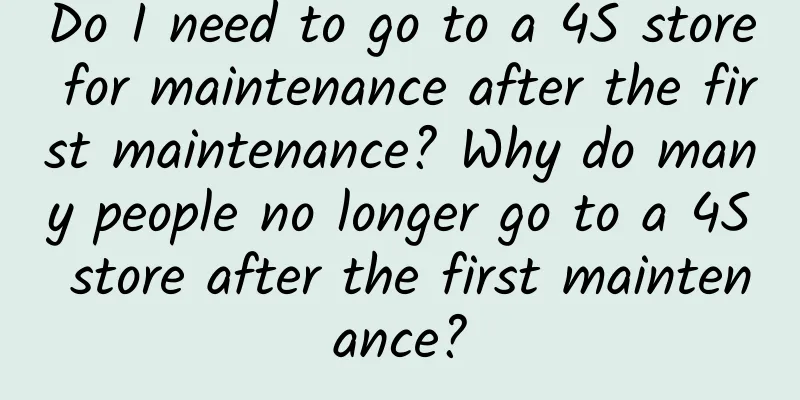Will tonsil removal in children affect immune function?

|
Tonsils are one of the body's immune organs and are often considered the "first line of defense" against pathogens. However, when repeated inflammation or hypertrophy of the tonsils causes health problems, doctors may recommend surgical removal. Many parents worry: Will removing the tonsils weaken their children's immunity? This article combines medical research and clinical views to answer this question for you. 1. Immune function of tonsils 1. Physical barriers and pathogen capture Tonsils are located on both sides of the oropharynx, which are the entrances to the respiratory and digestive tracts and can directly contact pathogens (bacteria, viruses, etc.) in the air and food. The uneven crypt structure can increase the contact area, adhere to and capture pathogens through mucus and cilia, and prevent them from penetrating deep into the respiratory or digestive tracts. 2. Generation and activation of immune cells Tonsils are rich in immune cells such as B cells, T cells, and dendritic cells, which can recognize pathogen antigens and initiate immune responses. After antigen stimulation, germinal centers are formed in the tonsils, promoting B cells to differentiate into plasma cells, produce antibodies, and neutralize pathogens. Some lymphocytes will transform into memory cells to provide a rapid response to future invasions of the same pathogen. 3. Key role of mucosal immunity Tonsils belong to mucosa-associated lymphoid tissue (MALT), participate in the mucosal immune system, secrete immunoglobulin A (IgA), and protect the oropharyngeal mucosa from infection. 4. Immune signaling Tonsillar cells can release cytokines (such as interferon and interleukin) to coordinate local and systemic immune responses. 2. Relationship between the immune function of tonsils and age Children's immune system is not yet mature, and tonsils are one of the most active immune organs. It plays an important role in the immune defense of early childhood (especially in infancy): by capturing pathogens (such as bacteria, viruses) and activating immune responses, producing antibodies and lymphocytes. Recurrent tonsillitis is common in children and may be related to the "exercise" process of the immune system. As we age, the immune function of tonsils gradually weakens. Studies have shown that the immune system of children under the age of 3 is not fully mature, and the tonsils play a more prominent role; after the age of 3, other immune organs (such as lymph nodes, spleen, bone marrow, etc.) gradually assume the main defense tasks, and the function of the tonsils weakens accordingly. Therefore, if surgery is required, the probability of the immune function of children over 3 years old being affected is lower. 3. The actual impact of tonsillectomy on immunity 1. Short-term adjustments: In the early weeks after surgery, some children may have an increased frequency of upper respiratory tract infections as the immune system adjusts to the absence of tonsils, but this effect is usually temporary. 2. Long-term compensation: The human immune system has a strong compensatory ability. Even if the tonsils are removed, other lymphatic tissues (lymph nodes, etc.) will gradually take over their functions. Studies have shown that immunoglobulin levels can return to normal 3 months after surgery. 3. Individual differences: If the child has an immunodeficiency disease or is receiving immunosuppressive treatment, tonsillectomy may increase the risk of infection, and a doctor's evaluation is required to develop an individualized plan. When is surgery necessary? Weighing the pros and cons Indications for surgery: Repeated tonsil infections (≥ 4 attacks per year) or serious complications (such as nephritis, sleep apnea); Excessively enlarged tonsils can cause breathing difficulties, swallowing problems, or developmental delays. Benefits of surgery: Eliminate lesions and reduce the recurrence of tonsil infection; Improve breathing and sleep quality and promote normal development of children. Potential risks: In rare cases, dry throat, foreign body sensation when swallowing, or tonsil regrowth may occur after surgery. 5. Postoperative care and immune recovery suggestions 1. Improve nutrition: Eat more fruits and vegetables rich in vitamins to enhance immunity. 2. Maintain hygiene: wash your hands frequently and avoid contact with sources of infection to reduce the risk of postoperative infection. 3. Regular follow-up: Check recovery status and deal with abnormal symptoms in a timely manner. 4. Immunization: Get vaccinated as scheduled to prevent infection with specific pathogens. |
<<: The reason behind children's missing teeth: hereditary ectodermal dysplasia syndrome
>>: Manyi•Issue 228 | Avoid “allergies from food” and beware of the “hidden risks” of allergies
Recommend
If a tooth is lost, can it grow back with medicine? What kind of "tooth growth" magic is this? !
Author: Huang Yanhong, Huang Xianghong, Duan Yuec...
Why is there brown in leucorrhea
We all know that normal female leucorrhea is whit...
Is 22mm of pelvic fluid serious?
Pelvic effusion reaches 22mm, most of which is ph...
Do I need to be hospitalized after an abortion?
Nowadays, abortion technology is very mature. As ...
Can I eat before having a painless abortion?
With the continuous development of society, peopl...
The most effective posterior pelvic tilt exercise
If you want to deal with the problem of posterior...
Treatment of cervical intraepithelial neoplasia grade I to II
With the improvement of the quality of life, peop...
How to take care of your uterus after it is removed?
Uterine fibroids are a common disease of the fema...
If you suddenly shake violently while sleeping, is it your body asking for help?
Have you ever had this experience: when you are a...
What to do if stretch marks itch
Almost every pregnant mother will develop stretch...
What happens when you are 6 weeks pregnant?
The sixth week of pregnancy is in the early stage...
Is it normal to have red blood streaks around the areola when you are not pregnant?
Once a woman becomes pregnant, the various hormon...
Can I eat apples when I have my period?
Apple is a very healthy fruit for the human body....
There are bumps on the lower side
The main reason for the growth of bumps on the lo...
A guide to avoiding "pitfalls" in New Year's diet: Stay away from acute gastroenteritis and pay attention to these details!
The Spring Festival should be a warm time filled ...









